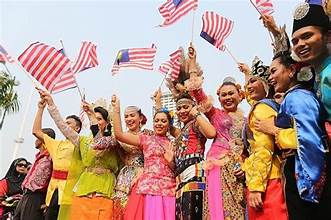
In an increasingly interconnected world, traditional cultures from various corners of the globe are gaining unprecedented international recognition. From local festivals that celebrate age-old customs to global stages showcasing cultural heritage, the influence of traditional cultures is more significant than ever. This article explores how traditional cultures are shaping the global landscape, examining their journey from local roots to international acclaim.
1. Preservation of Traditional Cultures
Traditional cultures are often characterized by their rich heritage, unique practices, and historical significance. These elements form the backbone of many local festivals and cultural events. The preservation of such traditions is vital for maintaining cultural diversity and fostering a sense of identity within communities. As globalization spreads, there is a growing awareness of the need to preserve these cultural practices. This preservation effort is not only about keeping traditions alive but also about sharing them with a global audience.
2. Local Festivals as Cultural Ambassadors
Local festivals play a crucial role in showcasing traditional cultures. These festivals often serve as vibrant expressions of a community’s heritage, featuring music, dance, art, and cuisine. Events such as the Rio Carnival in Brazil, Diwali in India, and the Japanese Cherry Blossom Festival attract international tourists, eager to experience these unique celebrations. Through these festivals, traditional cultures are introduced to a broader audience, fostering cross-cultural understanding and appreciation.
3. The Role of Media and Technology
In the digital age, media and technology have become powerful tools for promoting traditional cultures. Social media platforms, blogs, and online forums allow communities to share their cultural practices with a global audience. This digital exposure has enabled traditional festivals and customs to reach people who might never have encountered them otherwise. Furthermore, documentaries, travel shows, and online content highlight the significance of various cultural practices, contributing to their global recognition.
4. Cultural Diplomacy and International Recognition
Cultural diplomacy plays a significant role in elevating traditional cultures on the international stage. Many countries use cultural diplomacy as a means to strengthen international relations and promote their heritage. By participating in international cultural exchanges, showcasing traditional arts, and hosting global festivals, nations can enhance their global presence. This form of diplomacy not only celebrates cultural diversity but also fosters mutual respect and understanding between different societies.
5. Economic Impact and Sustainable Tourism
The global recognition of traditional cultures has also led to significant economic benefits. Tourism driven by cultural heritage can provide substantial revenue for local economies. Festivals and cultural events attract visitors, create job opportunities, and support local businesses. However, it is essential to approach this tourism with sensitivity and sustainability. Ensuring that tourism does not compromise the authenticity of cultural practices or exploit local communities is crucial for maintaining the integrity of traditional cultures.
6. Challenges and Considerations
Despite the positive aspects, the global influence of traditional cultures presents several challenges. One major concern is the commercialization of cultural practices. As traditional cultures gain international attention, there is a risk of their commercialization, which can dilute their original meaning and significance. Additionally, there is a need for respectful representation and participation from local communities to ensure that their cultural practices are portrayed accurately and sensitively.
7. Future Prospects
Looking ahead, the global influence of traditional cultures is likely to continue expanding. As more people seek authentic experiences and a deeper understanding of diverse cultures, traditional practices will play an increasingly important role in the global cultural landscape. Innovations in technology and media will further facilitate the sharing of cultural heritage, while ongoing efforts to preserve and respect these traditions will ensure their continued relevance.
Conclusion
The journey of traditional cultures from local festivals to international recognition highlights the profound impact these practices have on the global stage. Through preservation, media exposure, cultural diplomacy, and sustainable tourism, traditional cultures are celebrated and respected worldwide. As we move forward, it is essential to balance global exposure with respect for authenticity, ensuring that these cultural treasures continue to enrich the world for generations to come.

